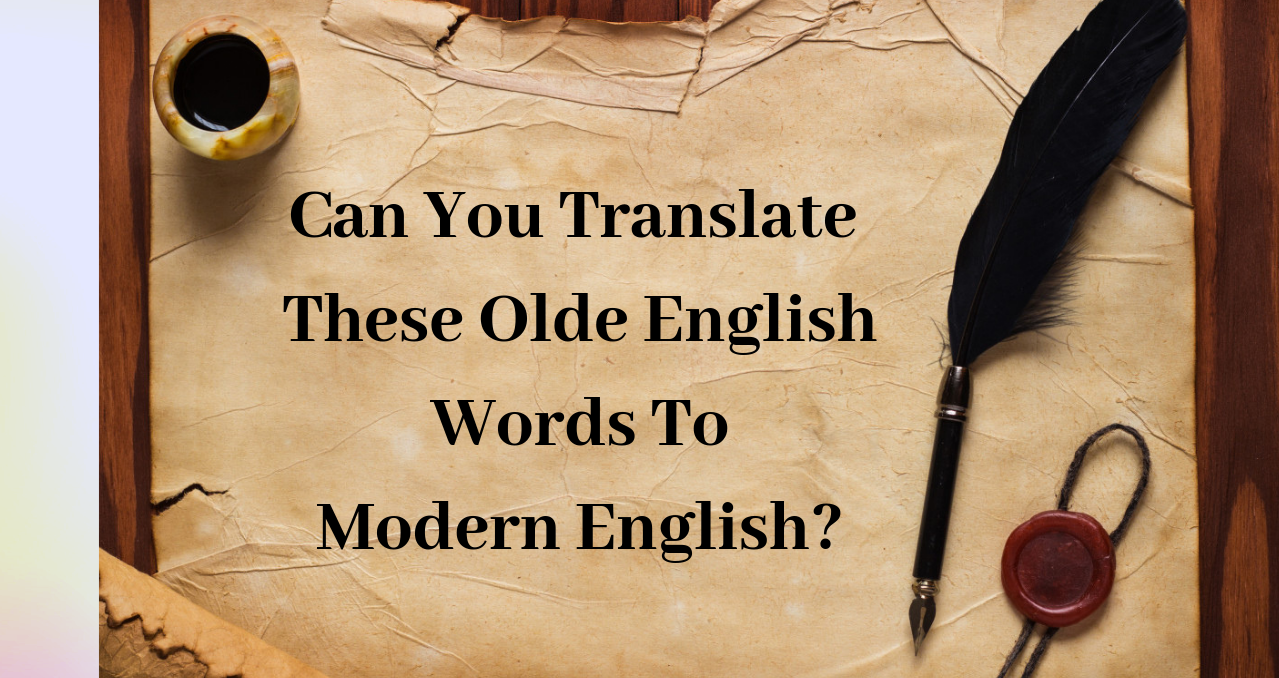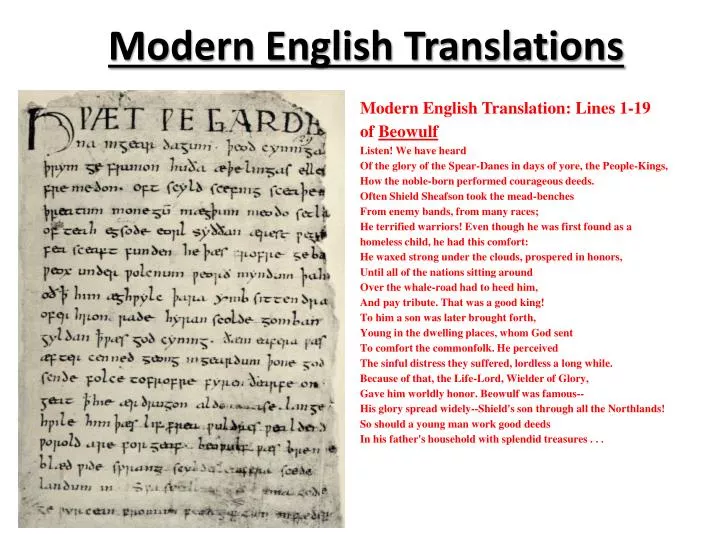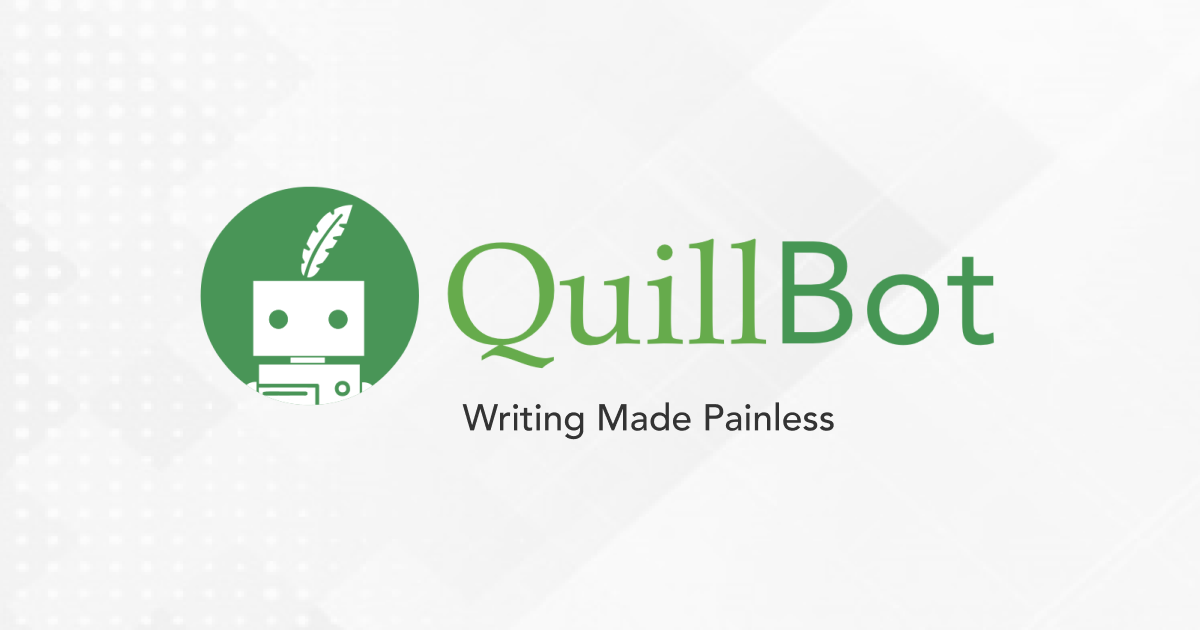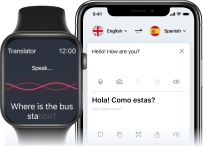Topic translate old english to modern english: Embark on a fascinating journey to bridge centuries, translating Old English to Modern English, unlocking the treasures hidden in ancient texts and connecting with our rich linguistic heritage.
Table of Content
- How to translate Old English to Modern English?
- Understanding Old English: Origins and Evolution
- Key Tools for Translating Old English
- Online Translation Platforms and Dictionaries
- Practical Tips for Accurate Translation
- Common Challenges in Old English Translation
- Learning Resources and Courses
- YOUTUBE: Old English Pronunciation: A Glimpse into the Past
- Historical and Literary Significance of Old English
- Case Studies: Translating Old English Literature
- Software and Apps for Translation
- Community Forums and Expert Assistance
How to translate Old English to Modern English?
To translate Old English to Modern English, you can follow these steps:
- Understand the basics of Old English: Familiarize yourself with the grammar, vocabulary, and pronunciation of Old English. This will help you better understand the original text.
- Start by studying Old English texts: Choose an Old English text or manuscript that you want to translate into Modern English. This could be a poem, a prose work, or any other written material.
- Analyze the text: Carefully read and analyze the Old English text to identify its structure, sentence patterns, and vocabulary. Make note of any unfamiliar words or outdated grammar rules.
- Consult dictionaries and grammar guides: Use Old English dictionaries and grammar guides to aid in your translation. These resources will provide definitions, translations, and explanations of Old English words and grammar.
- Break down sentences: Break down complex sentences into simpler parts and understand their meaning. Identify the subject, verb, and object of each sentence.
- Translate word by word: Begin translating the text from Old English to Modern English word by word, using your understanding of the grammar and vocabulary of both languages. Ensure that the meaning of each word is conveyed accurately in the translation.
- Consider the context: Take into account the context of the Old English text and the cultural background in which it was written. This will help you make appropriate choices in translating idioms, expressions, or cultural references.
- Edit and refine: Once you have translated the entire text, review it for accuracy, clarity, and overall flow. Make any necessary edits and refinements to ensure that the translation reads well in Modern English.
- Seek feedback: If possible, seek feedback from experts or native speakers of Old English or Modern English to ensure the quality and accuracy of your translation. They may provide insights or suggestions for improvement.
- Proofread: Finally, proofread the translated text for spelling, grammar, and punctuation errors. Make necessary corrections before the final version of the translation.

READ MORE:
Understanding Old English: Origins and Evolution
Old English, also known as Anglo-Saxon, is the earliest form of the English language, spoken in England and southern Scotland between the 5th and 11th centuries. It originated from the Germanic tribes that migrated to Britain during the early Middle Ages, blending their dialects with Latin and Norse influences. Over time, Old English evolved significantly, laying the foundation for Middle English and subsequently Modern English.
- Anglo-Saxon Settlements: The language\"s development began with the Anglo-Saxon settlements in England.
- Latin Influence: The introduction of Christianity in the 7th century brought Latin into Old English, enriching its vocabulary and script.
- Norse Integration: Viking invasions introduced Norse words, further diversifying the language\"s lexicon.
- Literary Works: Important texts such as \"Beowulf\" and the Anglo-Saxon Chronicle were written in Old English, offering invaluable insights into the culture and language of the time.
- Transition to Middle English: The Norman Conquest of 1066 marked the beginning of the transition from Old English to Middle English, significantly influenced by French.
This evolution reflects not only changes in sound, grammar, and vocabulary but also shifts in culture, society, and politics, illustrating the dynamic nature of language as it adapts to the needs of its speakers through the ages.

Key Tools for Translating Old English
Translating Old English to Modern English requires specific tools and resources to understand its complex grammar, vocabulary, and syntax. Here are essential tools for anyone looking to delve into Old English translations:
- Dictionaries and Glossaries: Comprehensive Old English dictionaries and glossaries are indispensable for understanding the meaning of words and their use in context.
- Online Translation Tools: Websites and software programs offer basic translation services, though they may not capture all nuances.
- Grammar Guides: Detailed grammar guides are crucial for understanding Old English\"s unique grammatical structures.
- Textual Databases: Online databases provide access to a wide range of Old English texts, from poetry to historical documents.
- Academic Journals and Books: Scholarly works can offer insights into translations, interpretations, and analyses of Old English literature.
- Language Learning Courses: Courses specifically designed for learning Old English can provide structured guidance and practice.
- Community Forums: Online forums and discussion groups connect translators and enthusiasts, offering support and advice.
Utilizing these tools effectively can enhance understanding and translation accuracy, bridging the gap between Old and Modern English.
Online Translation Platforms and Dictionaries
The digital age has made translating Old English to Modern English more accessible than ever. Online platforms and dictionaries play a crucial role in this process, offering valuable resources for both beginners and experienced scholars. Here are key online resources:
- Bosworth-Toller Anglo-Saxon Dictionary: An essential online resource for Old English vocabulary, offering comprehensive definitions and examples.
- Old English Translator: A user-friendly tool that provides word-by-word translations, helping users grasp the basic meaning of texts.
- The Dictionary of Old English (DOE): A digital dictionary project that aims to cover the entire Old English language, offering detailed word studies.
- Electronic Introduction to Old English: An online guide that combines a textbook, grammar guide, and glossary for learners at all levels.
- Thesaurus of Old English: A thematic thesaurus that helps understand the semantic relationships between Old English words.
These platforms and dictionaries not only facilitate the translation process but also enrich users\" understanding of Old English culture, history, and literature.

Practical Tips for Accurate Translation
Translating Old English into Modern English is a nuanced task that requires careful attention to detail. Here are practical tips to enhance the accuracy and quality of your translations:
- Start with a Clear Understanding: Ensure you have a solid grasp of Old English grammar and vocabulary before starting your translation.
- Use Multiple Dictionaries: Cross-reference different dictionaries to understand the full range of meanings of a word.
- Context is Key: Always consider the context in which a word is used, as many Old English words can have multiple meanings depending on their usage.
- Be Cautious with Online Translators: While online tools can be helpful, they may not always provide accurate or nuanced translations. Use them as a starting point, not a definitive solution.
- Practice with Known Texts: Work on translating texts that have already been translated to compare your interpretations with those of experts.
- Consult Academic Resources: Academic papers and books can provide insights into complex translations and cultural nuances.
- Join Community Forums: Engage with other translators and scholars in forums to share insights and ask for advice on challenging translations.
- Be Patient and Persistent: Translation is a skill that improves with practice. Don\"t be discouraged by initial difficulties.
By following these tips, you can improve your ability to translate Old English texts accurately, unlocking the rich historical and literary treasures they contain.

_HOOK_
Common Challenges in Old English Translation
Translating Old English into Modern English presents unique challenges that translators must navigate. Understanding these common hurdles can help in devising strategies to overcome them:
- Vocabulary Gaps: Many Old English words have no direct modern equivalent, requiring creative approximation or detailed explanations.
- Grammatical Complexity: Old English grammar differs significantly from Modern English, with unique cases, verb forms, and syntax, making translation not straightforward.
- Contextual Nuances: The cultural and historical context of Old English texts can be difficult to convey accurately in modern terms, necessitating thorough background research.
- Manuscript Variability: Variations and ambiguities in manuscripts due to scribe errors or damage over time can complicate translation efforts.
- Idiomatic Expressions: Old English is rich in idioms and metaphors that may not translate directly into modern sensibilities, requiring careful interpretation.
- Orthographic Variations: Spelling was not standardized in Old English, leading to multiple representations of the same word, which can confuse translators.
- Literary Allusions: Many texts make references to myths, legends, and historical events that modern readers may not be familiar with.
- Resource Limitations: Although there are many tools available, not all texts have been thoroughly analyzed or translated, leading to gaps in available resources.
By recognizing and addressing these challenges, translators can improve their approach to translating Old English texts, ensuring a more accurate and meaningful modern interpretation.

Learning Resources and Courses
For those interested in delving deeper into Old English and its translation, a wealth of learning resources and courses are available. These educational tools cater to a range of skill levels, from beginners to advanced scholars:
- Online Courses: Websites like Coursera and EdX offer courses on Old English literature and language, taught by university professors.
- Textbooks and Guides: Comprehensive textbooks provide in-depth coverage of Old English grammar, vocabulary, and translation techniques.
- Workshops and Seminars: Universities and cultural institutions often host workshops and seminars focusing on Old English texts and translation methods.
- Language Learning Apps: Apps designed for language learning can offer interactive ways to practice Old English, featuring quizzes, flashcards, and games.
- Academic Journals: Journals dedicated to medieval studies and Old English literature can offer insights into the latest research and translation theories.
- Online Forums: Communities of enthusiasts and scholars on platforms like Reddit or specialized forums can provide support, answer questions, and share resources.
- YouTube Channels: Educational channels offer tutorials and lectures on Old English history, literature, and language learning tips.
Engaging with these resources can enhance your understanding of Old English, improve your translation skills, and connect you with a community of like-minded individuals passionate about medieval literature.

Old English Pronunciation: A Glimpse into the Past
Improve your pronunciation skills with our easy and fun video tutorial! Learn how to pronounce words correctly and impress everyone with your clear and confident speech.
Engaging in Old English Conversations: Part 2
Want to become a master at conversations? Our video series will teach you the art of engaging and impactful conversations. From small talk to deep discussions, you\'ll learn all the tips and tricks to become a smooth and charismatic communicator.
Historical and Literary Significance of Old English
Old English holds a pivotal place in the tapestry of English history and literature, serving as a window into the early medieval world. Its significance is manifold, offering insights into the culture, society, and linguistic evolution of early England:
- Foundation of Modern English: Old English is the ancestor of Modern English, and studying it reveals the roots of many contemporary English words and grammatical structures.
- Cultural and Historical Insights: Old English literature, including epic poems like \"Beowulf,\" provides valuable insights into the values, beliefs, and daily life of Anglo-Saxon society.
- Literary Diversity: The corpus of Old English literature encompasses a wide range of genres, from poetry and prose to legal documents and religious texts, illustrating the linguistic and cultural richness of the period.
- Linguistic Evolution: The transition from Old English to Middle and then Modern English illustrates the dynamic nature of language, influenced by historical events such as the Norman Conquest.
- Educational Value: Learning Old English enhances understanding of the history of the English language and can enrich the study of English literature and linguistics.
- Preservation of Heritage: The study and translation of Old English texts play a crucial role in preserving England\"s literary and cultural heritage for future generations.
The historical and literary significance of Old English is profound, bridging the past and present, and continuing to influence the study of language, literature, and history today.

Case Studies: Translating Old English Literature
Translating Old English literature into Modern English is both a scholarly endeavor and an art form. Examining specific case studies illuminates the challenges and strategies involved in bringing ancient texts to contemporary audiences. Here are notable examples:
- Beowulf: Perhaps the most famous Old English epic poem, \"Beowulf\" has seen numerous translations. Each version aims to capture the poem\"s heroic themes, complex characters, and rhythmic beauty, showcasing the translator\"s approach to balance fidelity and readability.
- The Exeter Book: This collection of Old English poetry, including riddles and elegies, presents unique challenges due to its cryptic language and cultural references. Translators must navigate these to uncover and convey the poems\" meanings and emotions.
- The Anglo-Saxon Chronicle: As a historical document, translating the Chronicle requires understanding its context and purpose. Translators must decide how to best render its annalistic entries in a way that remains faithful to the original while being engaging for modern readers.
- Alfred the Great\"s Works: The translation of works attributed to or commissioned by Alfred the Great, including legal codes and philosophical texts, involves careful consideration of their legal and ethical implications, reflecting Alfred\"s vision for an educated and morally upright society.
- Religious Texts: Old English translations of biblical and theological works necessitate a nuanced understanding of religious language and its evolution, highlighting differences in interpretation and belief between then and now.
These case studies demonstrate the diverse approaches and methodologies applied in translating Old English literature, each contributing to the broader understanding of this ancient language and its enduring legacy.

Software and Apps for Translation
In the digital age, software and apps have become invaluable tools for translating Old English to Modern English, offering features that streamline the translation process and enhance learning. Here are some of the top tools available:
- Old English Translator Apps: Mobile apps specifically designed for Old English translation can provide instant translations, making them handy for quick references or on-the-go learning.
- Language Learning Platforms: Platforms like Duolingo or Babbel, while not focused solely on Old English, offer methodologies that can be applied to learning Old English structure and vocabulary.
- Text Analysis Software: Software that analyzes Old English texts can help identify patterns, parse grammar, and suggest translations based on context, aiding more in-depth study and understanding.
- Online Dictionaries and Glossaries: Web-based tools offer extensive databases of Old English words, complete with definitions, synonyms, and examples in both Old and Modern English.
- Academic and Research Tools: Specialized software used in academia can assist in the translation and analysis of Old English manuscripts, offering features like manuscript digitization, annotation, and comparative study tools.
These digital resources, when used alongside traditional study methods, can greatly facilitate the translation of Old English texts, making the ancient language more accessible to modern learners and scholars.

_HOOK_
READ MORE:
Community Forums and Expert Assistance
Engaging with community forums and seeking expert assistance are invaluable strategies for overcoming challenges in translating Old English to Modern English. These platforms offer support, insights, and resources for both novice and experienced translators:
- Online Forums: Websites such as Reddit or Stack Exchange host communities where enthusiasts and scholars of Old English can share knowledge, ask questions, and discuss translations.
- Academic Networks: Joining academic and professional networks can connect you with experts in Old English literature and linguistics, offering opportunities for mentorship and collaboration.
- Social Media Groups: Social media platforms have numerous groups and pages dedicated to Old English, where members share translations, resources, and advice.
- Workshops and Webinars: Participating in workshops and webinars led by experts in Old English can provide practical translation tips and deepen your understanding of the language.
- University Resources: Many universities offer access to seminars, talks, and libraries with extensive collections of Old English texts and translations, as well as faculty expertise.
By leveraging these community and expert resources, translators can enhance their skills, gain new perspectives, and contribute to the field of Old English studies.
Embarking on the journey to translate Old English into Modern English opens a gateway to the past, enriching our understanding of history, language, and culture. Embrace this adventure to unlock the treasures of ancient texts.









